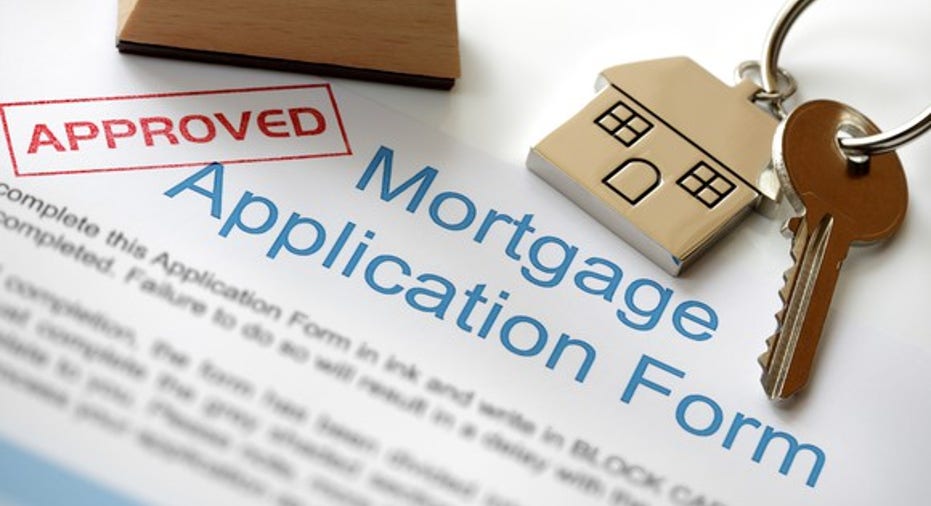4 Things to Do Before Applying for a Mortgage

Securing a mortgage is your ticket to homeownership, but not everyone gets approved these days. If you're looking to increase your chances of snagging that home loan and keeping up with your payments, here are a few steps to take before applying.
IMAGE SOURCE: GETTY IMAGES.
1. Save, save, save
The more you save before signing a mortgage, the more flexibility you'll have. You should especially make sure to save enough for a 20% down payment on the home you're looking to buy, because if you don't, you'll be slapped with private mortgage insurance. PMI usually equals 0.5% to 1% of the amount of your mortgage, which means that if you take out a $250,000 home loan, you could add up to $2,500 a year to your housing costs.
As a general rule, you should never spend more than 30% of your take-home pay on housing, so adding a PMI premium to that expense category can limit your choices or cause you to stretch your budget to a dangerous point. Plus, keep in mind that the more money you put down for your home, the lower your monthly payment will be -- and the less you'll end up paying in interest over time.
2. Work on raising your credit score
There are two major factors that will typically dictate whether you'll be approved for a mortgage: your income, and your credit score. If the latter is less-than-stellar, you'll need to work on raising it before applying for a home loan. Otherwise, you risk getting denied, or getting approved at a less favorable rate.
By law, you're entitled to a free copy of your credit report every year, which you can obtain online. Once you have yours, the first thing you should do is examine it for mistakes. An estimated 20% of credit reports contain errors, and failing to correct misinformation could hurt you. Next, work on paying off bad debt (such as credit card debt) and lowering your credit utilization ratio, which is the percentage of available credit you're actually using. Lenders typically like to see a credit utilization score of 30% or lower, which means that if you have $10,000 in available credit, you shouldn't owe more than $3,000 at any point in time. If you can knock your credit utilization ratio down below that mark, you stand a better chance of getting approved.
3. Account for closing costs
Getting a mortgage is only part of the homebuying process. There are other hurdles you'll need to get past as well, such as finalizing your home sale agreement or completing your title search. These added necessities are typically all rolled together as closing costs, which, on average, can total anywhere from 2% to 5% of your home's purchase price. This means that if you're buying a $300,000 home, you can expect to pay anywhere from $6,000 to $15,000 up front. Consider yourself warned.
4. Build up emergency savings
Once you sign your mortgage, you're locked into whatever monthly payments you've committed to. That's why it's important to have emergency savings in place before taking that leap. Your emergency fund should have enough money to cover three to six months of living expenses. When doing your calculation, be sure to account for your new costs of homeownership, which include not just your mortgage payment, but property taxes, homeowners' insurance, and maintenance.
While everyone needs an emergency fund, it's even more critical to have one as a homeowner. When you become responsible for an actual piece of property, no matter its size, you open the door to countless expenses. Having a safety net in place is the only way to approach the process responsibly.
Here's what not to do
While the above steps can put you in a better position to get approved for a mortgage, it's also important to know what not to do before applying for that loan. For one thing, think twice before taking a new job immediately before or during the application process. Your lender will want to see that you have a steady source of income, and you may be required to submit recent paystubs as confirmation. If you're so new to a job that you haven't established a payment history there, it might raise a red flag.
Furthermore, it's best to avoid making major purchases around the time you're applying for a mortgage. First, the more you spend, the less cash you'll have available for your down payment or closing costs. Not only that, but taking out an additional loan could cause your credit utilization ratio to rise at the worst possible time.
Finally, don't make the mistake of taking on a mortgage you can't keep up with. Lenders aren't always the best judges of what you can afford (hence the whole housing bubble going kaput), and it's better to err on the side of caution than get in over your head.
The $15,834 Social Security bonus most retirees completely overlook If you're like most Americans, you're a few years (or more) behind on your retirement savings. But a handful of little-known "Social Security secrets" could help ensure a boost in your retirement income. For example: one easy trick could pay you as much as $15,834 more... each year! Once you learn how to maximize your Social Security benefits, we think you could retire confidently with the peace of mind we're all after.Simply click here to discover how to learn more about these strategies.
The Motley Fool has a disclosure policy.



















